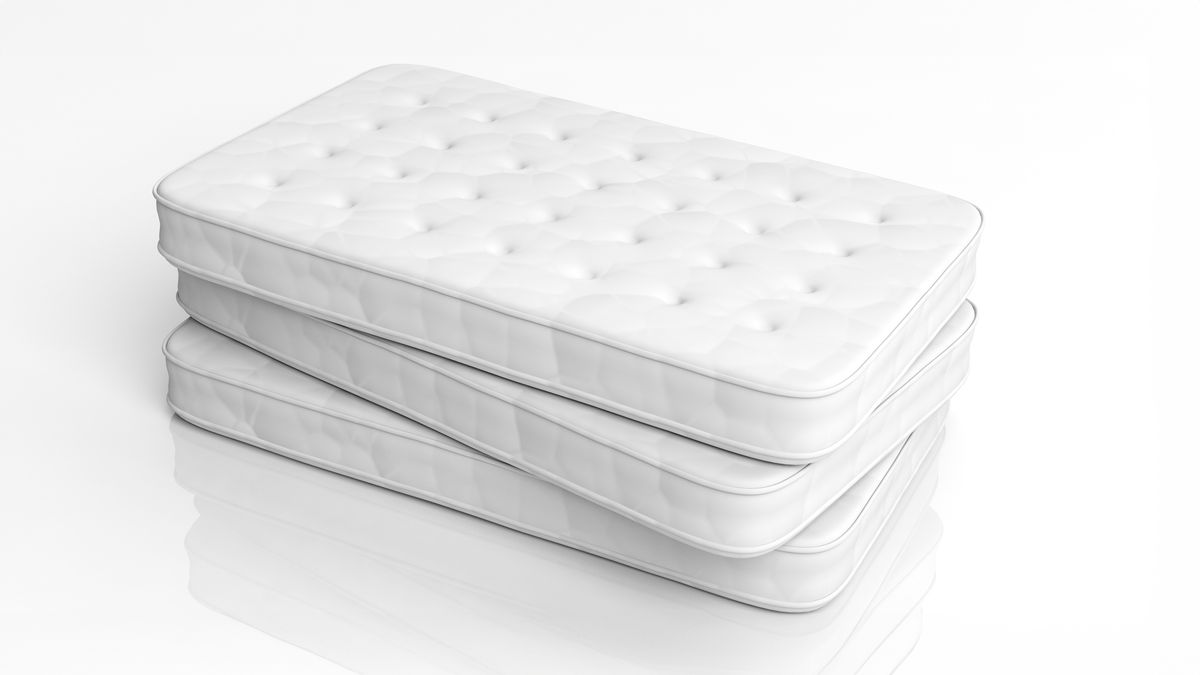You've started the year with the best intentions of cutting back on the junk food and exercising regularly. Then you have a sleepless night and it all goes out the window. Sound familiar? You're not alone.
One of the most common new year's resolutions is fitness and weight loss related. But craving sugary snacks and losing will power after a poor night's sleep is not uncommon. Research has long shown that skimping on sleep increases hunger and decreases our impulse control, leading to poorer nutritional choices.
This new year, we've asked clinical and medical psychologist Dr Leah Kaylor why exactly we get so hungry when we're tired. Plus we've rounded up tips for you to improve your sleep quality and stay on track with your goals.
Why do we eat more when we're tired?
Sleep has a huge impact on weight loss. Getting good rest is intricately linked to your body's ability to regulate hunger, metabolism and energy levels, yet it is often the missing piece of the puzzle in people's new year's resolutions.
Dr Kaylor explains: "When you miss out on sleep, even for a single night, your body undergoes significant hormonal disruptions that affect hunger regulation." The hormones in question are ghrelin and leptin."
She adds: "Ghrelin, often referred to as the 'hunger hormone,' increases when you’re sleep-deprived, signaling your brain that it’s time to eat. Simultaneously, leptin, the hormone responsible for signaling satiety or fullness, decreases. This imbalance creates a potent combination: you feel hungrier than usual and less satisfied after meals."

Resisting a sugary pastry when ordering your coffee or saying no to biscuits in the office is already a tough task. Add tiredness into the mix and it seems ten times harder. This is because poor sleep negatively impacts decision-making and impulse control, making it even harder to resist unhealthy food options and stick to your healthy intentions.
Since we're energy-deprived when we don't sleep well, we tend to crave more 'high-energy' foods, aka high-sugar foods. As Dr Kaylor puts it: "Insufficient sleep causes a preference for calorie-dense, high-fat, and high-sugar foods."
She also draws attention to research that shows individuals who sleep fewer than six hours a night consume, on average, 200 to 500 more calories per day compared to those who sleep seven to nine hours. Those extra calories can stack up, sabotaging your new year's weight loss resolutions.
It's already a bleak picture for your weight loss goals when you're sleep deprived. To make matters worse, poor sleep also upsets your metabolism, making it harder for your body to convert food into energy.
Dr Kaylor explains: "When you’re short on rest, your body becomes less efficient at processing glucose, making it harder for cells to use sugar as fuel. This inefficiency can lead to higher blood sugar levels and increased fat storage, particularly around the abdomen."
Ultimately, without adequate quality sleep, you're body isn't as good at breaking down fat and stores it instead. Therefore, you won't see the progress you expect, no matter how hard you're training or how well you think you're eating.

Dr Kaylor says: "Poor sleep affects your behavior too. When you've had a poor night's rest, you might feel sluggish and unmotivated, you might skip your morning run or opt for a lazy evening on the couch instead of heading to the gym."
Skipping exercise means you build less muscle and store more fat, which has a knock on effect on your metabolism. This is because muscle burns more calories at rest than fat. So, without adequate exercise your body is even less efficient at breaking down food into energy.
5 ways to stop poor sleep sabotaging your new year's resolutions
Sleep is the bedrock of health, performance and cognitive function. Therefore, prioritizing it should be the first step you take when looking to make better lifestyle choices. Here's how to supercharge your sleep, so you can hit those new year's resolutions...
1. Establish a nighttime routine
Helping you fall asleep fast and boosting sleep quality, a well-established, enjoyable and sustainable nighttime routine could be key to hacking your new year's resolutions.
Your routine should be personal and include a relaxing activity (Dr Kaylor recommends reading, journaling, meditating or stretching) that will help you wind down and let go of stress accumulated through the day. A sleep-inducing drink or hot shower are also great additions to a bedtime ritual.
2. Regulate your circadian rhythm
Aside from your bedtime routine, a consistent overall sleep schedule, where you go to sleep and wake up at roughly the same time each day and night, is pivotal to regulating your internal body clock, ensuring you sleep and wake up easily when you are meant to.
Exposing yourself to morning sunlight, be it natural light or from a sunrise alarm clock, is key to regulating your circadian rhythm as it boosts the alertness hormone cortisol early doors, giving you energy to get up and at it.

What's more, science proves exercising in the morning can improve sleep quality, which equals more energy when you wake up. So, putting the two together, exercising outdoors in the morning could very well be the answer to improving your sleep while reaching your weight loss goals. Get out for a morning walk, run or cycle and tick off exercise and sunlight exposure in one go.
3. Ensure your sleep environment is comfortable
A comfortable and clean bedroom can do wonders for your sleep quality. Having a clutter-free sleep space helps reduce stress so you can drift off peacefully.
Meanwhile, sleeping on the best mattress and best pillow for your body type and sleep needs will ensure you remain comfortable and your body is supported throughout the night.
This will help you wake up feeling well-recovered and refreshed without any aches and pains, ready to hit your workout and fuel your body correctly.
4. Stay hydrated
It's no surprise that keeping hydrated is key to maintaining good health and it does wonders for your sleep too. There are many reasons why drinking water helps sleep and research shows inadequate hydration is associated with short sleep duration.
From regulating body temperature to supporting brain function, preventing headaches and muscle cramps and improving your circadian rhythm, water can help you sleep deeply and therefore reduces excessive hunger the next day. Plus, your brain sends confusing signals when you are dehydrated and your body can think you're hungry when you're not.

5. Nap if you need it
Granted, daytime naps aren't possible for everyone. They are a far-fetched dream for busy parents and full time workers. But if you are afforded the luxury of a spare 20 minutes in the day, a power nap can give you that much-needed energy boost without reaching for sugary snacks. If you need help nodding off in a short time window, turn on the binaural beats and unlock those daytime ZZZs.





















 English (US) ·
English (US) ·